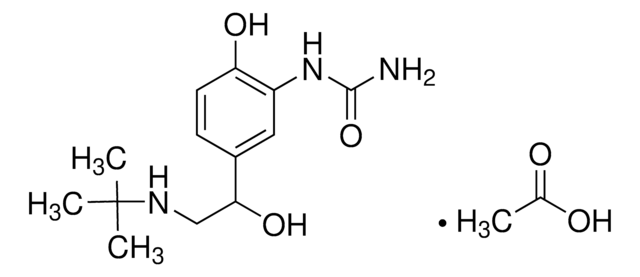SML1935
Nimorazole
≥98% (HPLC)
Synonym(s):
4-(2-(5-Nitro-1H-imidazol-1-yl)ethyl)morpholine, K 1900, K-1900, K1900, NSC 107524, NSC-107524, NSC107524
About This Item
Recommended Products
Quality Level
Assay
≥98% (HPLC)
form
powder
color
white to beige
solubility
DMSO: 30 mg/mL, clear
storage temp.
2-8°C
SMILES string
[N+](=O)([O-])c1[n](cnc1)CCN2CCOCC2
InChI
1S/C9H14N4O3/c14-13(15)9-7-10-8-12(9)2-1-11-3-5-16-6-4-11/h7-8H,1-6H2
InChI key
MDJFHRLTPRPZLY-UHFFFAOYSA-N
Biochem/physiol Actions
Signal Word
Danger
Hazard Statements
Precautionary Statements
Hazard Classifications
Muta. 1B - Repr. 2
Storage Class Code
6.1C - Combustible acute toxic Cat.3 / toxic compounds or compounds which causing chronic effects
WGK
WGK 3
Flash Point(F)
Not applicable
Flash Point(C)
Not applicable
Choose from one of the most recent versions:
Certificates of Analysis (COA)
Don't see the Right Version?
If you require a particular version, you can look up a specific certificate by the Lot or Batch number.
Already Own This Product?
Find documentation for the products that you have recently purchased in the Document Library.
Our team of scientists has experience in all areas of research including Life Science, Material Science, Chemical Synthesis, Chromatography, Analytical and many others.
Contact Technical Service









